Notice: Trying to access array offset on value of type bool in /home/arsgroup/domains/kamieniarstwojasik.pl/public_html/wp-content/themes/betheme/functions/theme-functions.php on line 1536
Notice: Trying to access array offset on value of type bool in /home/arsgroup/domains/kamieniarstwojasik.pl/public_html/wp-content/themes/betheme/functions/theme-functions.php on line 1537
Notice: Trying to access array offset on value of type bool in /home/arsgroup/domains/kamieniarstwojasik.pl/public_html/wp-content/themes/betheme/functions/theme-functions.php on line 1538
SBK Trade СБК Трейд https: sbktrade com 1000 и 1 Отзыв
1 lipca, 2020Прогноз USD CHF Форекс для начинающих
24 grudnia, 2020Notice: Trying to access array offset on value of type bool in /home/arsgroup/domains/kamieniarstwojasik.pl/public_html/wp-content/themes/betheme/functions/theme-functions.php on line 1536
Notice: Trying to access array offset on value of type bool in /home/arsgroup/domains/kamieniarstwojasik.pl/public_html/wp-content/themes/betheme/functions/theme-functions.php on line 1537
Notice: Trying to access array offset on value of type bool in /home/arsgroup/domains/kamieniarstwojasik.pl/public_html/wp-content/themes/betheme/functions/theme-functions.php on line 1538
Content
It just came about at a time when they really had to do it in kind of a hurried way, and not necessarily have the time and the space to intentionally make the changes that need to be made. So they realize that they can separate work from a single location. And they don’t have to sacrifice time with family, or hobbies, or friends, or things remote work podcasts that they love, to succeed at their job. Just how successful remote work has been throughout the pandemic. But if you can make the time, then I think you’ll get a lot of value from these episodes. You’ll hear about people who have created their own home-based business, people who earn passive income, and similar remote working stories.
- Tips offered are practical, focusing on the habits, strategies, and rituals that lead to professional success and fulfillment.
- These podcasts can serve as a resource to remote workers without eating up a large portion of the day.
- This show has hosted an eclectic group of guests over their nearly 200 episodes so far.
- And there’s really no one-size-fits-all, because we’re all individual people.
- When you commit to being remote first, you are committing to building a future where there is no set map to get there.
- That said, it may not be possible for someone to hire like a full-time remote leadership level role at first.
So you know, we really look to see that the ideal scenario here would be that hybrid remote workplaces really incorporate a lot of those remote-first principles, even if they do have an office and a set of people that go into the office every day. And that way, you’re going to move forward knowing that this is not just something that you’re putting on your career site. It’s https://remotemode.net/ really something that’s incorporated into your culture and into the daily workings of your organization. And so you know, that creativity has applied to I think every team in the world. But these days, I really think we’re seeing the conversation around the return to office to focus on the where of work and less focused on what it should be, which is the how of work.
Productivity Podcasts for Living Your Best Remote Work Life
In this episode, Maya and Pilar are joined by two other voices talking about the opportunities and challenges of asynchronous communication. Plus, will businesses exploit the metaverse and of course, the complexities of hybrid.

When you have that time together in person, please don’t spend 80 percent of it in a war room doing strategy. Spend 20 percent of your time doing work and the other 80 percent hanging out. Listen to the full interviews from episode 300 in this new podcast, Work Life Changes & Remote Work in Organisations. I will also caveat that there are ways to avoid these pitfalls of hybrid work and those ways are outlined in the playbook. So we do recommend managers to have that video so that you have the facial reactions and can see someone’s face. Video one-on-one connections either or weekly or whatever frequent cadence works best for that team member and where they are in their career.
Amy Yin, Founder & CEO at OfficeTogether
However, we did find a few and they made our list of the 14 best remote work podcasts. In this episode, Maya and Pilar discuss the mental health challenges in returning to the office space, the evolution of communication in the workplace and the reasons why many people do not want to work remotely – in Spain and other places. The one thing I would share with someone today is actually a personal anecdote or story.
We also we have predictions about things like cities and towns being reinvigorated by people having more choice and where they live and how much time they have to commit to their communities. But there’s so much to be said for having something that encourages you to take breaks every now and then and get up and move around your house or wherever you work remotely. I do not recommend getting a seven-week old puppy the week that you onboard into a new job the way that I did when I started. They were doing remote working long before the pandemic forced many of us into that situation. So they’ve really been documenting and making this process very clear internally and now they’re sharing that with the world. Before she took over the all-remote role at GitLab, she was on the marketing team where she focused on employer branding and recruitment marketing.
Steli Efti, CEO and Co-Founder of Close.io
But the website works, and the content is free, and it does cover some issues that remote workers will face. Workplaceless envisions a workforce that thrives in a flexible and digital-first future—where performance and growth are not constrained by location. Our team goal is to share insights and practices that will help professionals and companies achieve this aspiration. With remote work becoming more and more common, it comes as no surprise that there are now several podcasts about the topic. If you’re interested in remote work and/or the future of work, and like to hear about all the cool things that people are doing while location independent, have a listen to these great shows. In this podcast, Adam Finan has interviewed experts on how to hire virtual assistants from the Philippines, build a business that you love, and deal with remote freelance work in times of pandemic. Digital Nomad Cafe informs you about creating a successful business online.
And we actually have an entire guide in GitLab’s broader guide to remote work that’s dedicated to the head of remote role. So to take a step back GitLab, the product, is the DevOps platform, it’s an amazing collaboration tool that allows teams to deliver software and work together faster and more efficiently in a single platform. And then GitLab, the company, has been remote since inception, like you mentioned. For many companies, remote work was just a stopgap measure to address a temporary disruption to business as usual. There are lot of podcasts out there on productivity, but I think moms will get the most benefit from this one.
Distributed, with Matt Mullenweg
Hosted by Lisette Sutherland, The Collaboration Superpowers Podcast covers remote work from lots of different angles. Hear how remote companies around the world streamline communication and manage their time and teams effectively. Download and listen as Jennifer Dennard breaks down how remote teams can use rituals, prompts and well organized meetings to become closer, more connected and more innovative, even asynchronously. There are podcasts in any niche, about any topic, catering to any interest or hobby.
- So it really doesn’t matter what remote model you’re embracing, there’s something in the playbook for every type of team to benefit from.
- Be the first to know about Anyplace news including tips on remote work, digital nomadism, and housing.
- There’s more than a year’s worth of top-notch content on Freelance’s PlayerFM channel and it’s very much worth digging into.
- You’ll learn how to build a passive income and build the skills needed to go fully remote.
This podcast also has an entrepreneurship slant to it, but it’s still focused on working at home. New episodes are regularly released, and there’s plenty of older episodes for you binge. If you’re also interested in things like entrepreneurship and doing your own thing, then you’ll really enjoy this podcast.
Hiring templates
But I also think there’s a huge list of benefits to the company for the future that are less talked about things like making your team more agile, and being able to hire from a broader swath of the world. And it helps you then work better when you’re working asynchronously back at home or wherever you work remotely. So I’ve had lots of different sort of experiences with remote work across that spectrum. And when I started with GitLab, it seemed like such a natural progression, because much of what we do, you know, as a talent brand professional is talk about why someone would want to join a particular company. And for GitLab those reasons as a candidate even were so obvious to me. And then they played out so authentically, once I joined the team, that it just seemed like a natural progression, once I did move on to the all remote team, which is where my role sits now. In this podcast, host Erik Fisher talks with experts from every walk of productive life—remote work included.
- Fisher isn’t all about empty advice that lets you fit more into your day, however – he recognizes that productivity must have a goal, and for Fisher it’s about how you find and create meaning in your own life.
- But those are kind of the top two signs, I would say, to really dig in deeper and make sure that you’re setting your organization up for success for the future.
- So we’ve seen a ton of change on our team and being creative about how we stay connected.
- And it’s still being produced, with almost 300 episodes currently in the archive.
